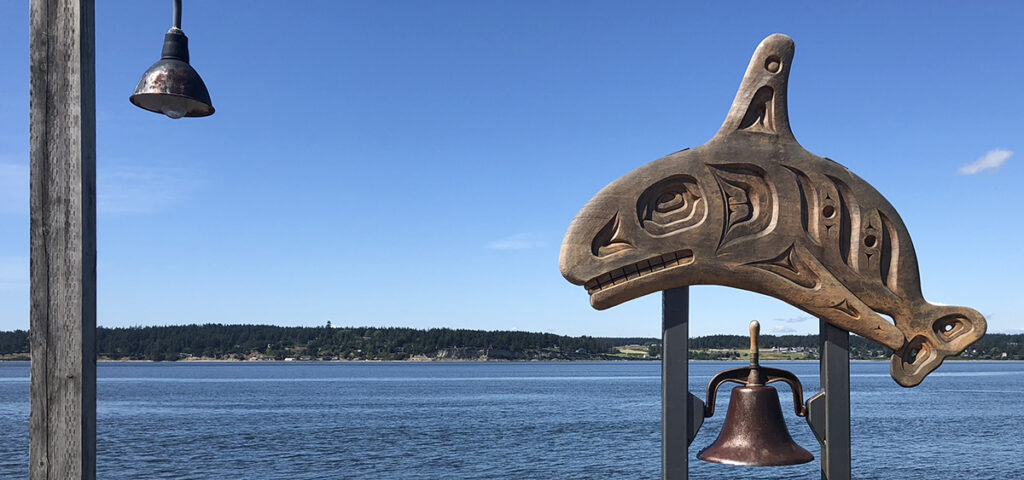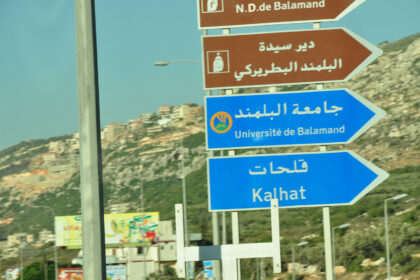
As Rebecca and I deepen our connections to the Salish Sea region, we have frequent occasion to reflect on the meaning of community. As someone who has embraced a lightly-rooted life, learned in part from my globetrotting grandparents who nurtured me as a youth, I’ve struggled to form bonds of fellowship and place. Community has always seemed best understood by its darker manifestations – enforced, arbitrary standards; gossip and judgement; repression of creativity.
Yet as I’ve matured and put the hours in to the hard work of building relationships – with family and children; with friends and neighbors; with professional colleagues – I’ve grudgingly come to recognize that communities are simply webs of people involved in each other’s lives, and that communities that rest on love, kindness and respect are one of the great mysterious treasures from which we enrich our lives and service.
I find ongoing inspiration, and a childlike hope, in the daily beats and thrums of vibrant creative communities in particular. These come in all sizes, and while some focus on crafts and creative arts, others focus on a shared creation of a way of life or even the creativity of the well-lived spiritual path. In Washington, two communities have strongly impacted my life: the Bainbridge Artisan Resource Network (the BARN), and The Mountaineers.
The BARN, on Bainbridge Island, WA , is an inter-generational community of artisans and makers learning, teaching and inspiring each other with creativity, craftsmanship and community service. The joy we all take in this budding maker space is palpable.
Then there’s The Mountaineers, a nonprofit outdoor community of over 12,000 active members in the Pacific Northwest founded in 1906. The Mountaineers have encouraged me to challenge myself ever since I first learned first aid and emergency response skills using a tattered copy of their alpine medicine book as a student at the National Outdoor Leadership School. Now, I have the opportunity to help them here, in the land that led to their founding, and serve this special bio-region and all those who call it home.
All this brings to mind an article I wrote almost 15 years ago, on one faith’s understanding of community. I’m going to leave an extended excerpt from it below, but this is what I’d consider the key takeaway for myself today: “The human person is created for relationship.”
The Way of Koinonia
(originally published March 2006 by the Orthodox Christian Network)
Koinonia is a Greek word that means community, in its most profound and mysterious sense, and it is in community that we find the truth of who we are and how we should live. It is in God’s community, in koinonia, that we find our life as persons.
Orthodox Christianity offers us an alternative to the isolation of individualism – it offers us true personhood. What does this mean? What is the difference between individualism and personhood? The great Orthodox teacher Bishop Kallistos Ware gives us an eloquent answer: “The human person is created for relationship.” True personhood is not found in individuals – it is found in community.
At the heart of this teaching is our affirmation that we are created in the image of God. And as Christians, we proclaim that when we say “God,” we mean the Holy Trinity: Father, Son, and Holy Spirit. We understand that God Himself is not in isolation. “God is love,” we read in 1 John 4:8. God is love because God Himself is community. Bishop Kallistos goes on to say, “God is not a unit, but a union. God is love in the sense of shared love, the mutual love of three Persons in one. … God is shared love, not self-love. God is openness, exchange, solidarity, self-giving.”
We can only truly understand ourselves, we can only lay claim to the image of God within us, when we recognize that like God the truth of who we are is centered in community. The truth of our very nature demands that we fully embrace our relationships with others. This is the key to personhood according to the Trinitarian image. Not isolated self-awareness, but relationship in mutual love.
Remember the words of Christ in His prayer to the Father at the Last Supper: “That they all may be one, as you, Father, are in Me, and I in You; that they also may be one in Us.” The mutual love of the Holy Trinity is the model for our human personhood. We are here on earth to reproduce within time the love that passes in eternity between Father, Son, and Holy Spirit. There is a wonderful book called “The Paradox of Choice: Why Less Is More”, by Barry Schwartz, a professor of psychology. Schwartz’s book is an attempt to answer the question, “Why are people increasingly unhappy even as they experience greater material abundance and freedom of choice?”
He writes:
If enhanced freedom of choice and increased affluence don’t enhance well-being, what does? The most important factor seems to be close social relations. People who are married, who have good friends, and who are close to their families are happier than those who are not. People who participate in religious communities are happier than those who do not. Being connected to others seems to be more important to well-being than being rich or ‘keeping your options open.’
In the context of this discussion of choice, it is important to note that, in many ways, social ties actually decrease freedom of choice. Marriage, for example, is a commitment to a particular other person that curtails freedom of choice of sexual or emotional partners. Serious friendship also entails weighty responsibilities and obligations that at times may limit one’s own freedom. The same is true, obviously, of family. And most religious institutions call on their members to live their lives in a certain way, and to take responsibility for the well-being of their fellow congregants. So, counterintuitive as it may appear, what seems to contribute most to happiness binds us rather than liberates us.
Think of that conclusion: “What seems to contribute most to happiness binds us rather than liberates us.” Here is the essence of the insight in to the human condition which our Orthodox Christian faith gives us. We may believe that we will find our joy by breaking all bonds, by embracing our individualism and our freedom. But true joy, true freedom, our true selves are found instead in the embrace of true community – of the only true community which is possible, the kononia of God.
Of course, there is one great challenge in living as part of a community. Can you guess what it is? That’s right – other people! Why is it so tempting for us to isolate ourselves, to avoid church, to want to flee from any relationship that might make demands on us? Because when we become involved with others, we will be hurt. There’s no getting away from it. Relationship means pain. It means people will hurt us, and we will hurt them.
CS Lewis put it well: “To love at all is to be vulnerable. Love anything, and your heart will certainly be wrung and possibly be broken. If you want to make sure of keeping it intact, you must give your heart to no one, not even to an animal. Wrap it carefully round with hobbies and little luxuries; avoid all entanglements; lock it up safe in the casket or coffin of your selfishness. But in that casket – safe, dark, motionless, airless – it will change. It will not be broken; it will become unbreakable, impenetrable, irredeemable. The alternative to tragedy, or at least to the risk of tragedy, is damnation. The only place outside Heaven where you can be perfectly safe from all the dangers of love is Hell.”
If you believe you can protect yourself from pain by holding back, by not engaging with others, you are lying to yourself. We must engage, we must commit, we must come together. We must love. And we will all suffer for it, and cause suffering to others. If you want to live, there is no other way.
This is why we began Great Lent with the service of Forgiveness Vespers. As we journey through Lent, we strengthen our bonds as a holy fellowship, a true koinonia. So, we start by getting anything that might hinder this bonding out in the open. We forgive. Forgiveness isn’t just about saying the words, or going through the motions. And it isn’t about excusing or justifying someone’s actions, pretending that they didn’t really cause you pain. True forgiveness means recognizing that someone has sinned against you, and choosing to love them anyway. To forgive is to set the prisoner free and then discover the prisoner was you.
Fr. Alexander Schmemann wrote in Great Lent, which I strongly suggest that all of you consider reading this season, that “To forgive is to reject the hopeless ‘dead-ends’ of human relations and to refer them to Christ. Forgiveness is truly a ‘breakthrough’ of the Kingdom into this sinful and fallen world.”
This is our goal – bringing about the breakthrough of the Kingdom of Heaven in to our world. This is what God is calling you to be part of. This is why He wants you to choose to be part of His Church, of this holy community. Remember the old saying: “The only thing we can do alone is go to hell.” But together, we can transform our lives by transforming our relationships. We can become more than individuals – we can become true persons in the image of God. We can become saints. And, to quote Fr. Schmemann a final time, “The saint is the only true revolutionary in this world.”









